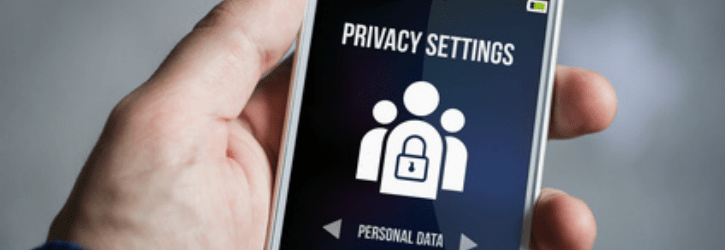Welcome To The Data Leak Lawyers Blog
We focus on the latest news surrounding data breaches, leaks and hacks plus daily internet security articles.
We focus on the latest news surrounding data breaches, leaks and hacks plus daily internet security articles.

The recent East Lindsey Council data breach was another example of a totally avoidable incident that resulted in sensitive information being exposed.
Our lawyers are often representing victims for council data breach cases. This includes for claims against local authority agencies and outsourced third-parties as well.
Public sector breaches can be common, and council data breaches are amongst the most frequent we see. As is the case with the East Lindsey Council data breach, many of the incidents are totally avoidable. Many stem from simple errors that can have costly consequences.

The most famous LinkedIn data breach stems from the 2012 hack that took years to come to light. But since then, there has reportedly been others.
There has reportedly been several other data breaches with connections to the Microsoft-owned networking site for professionals. But this latest LinkedIn data breach arises from the way some 18 million people’s email addresses have reportedly been used for targeted Facebook ads.
According to recent investigations, this is yet another data breach involving LinkedIn.

A number of individuals have contacted us with concerns about the Facebook data breach incidents that have come to light.
If you’ve been affected by a Facebook data breach, our team may be able to help with a claim for compensation.
From the recent private messages hack, to the infamous Cambridge Analytica data breach, Facebook appears to have a lot to answer for. If you’ve been affected by a data breach as a Facebook user, you may be entitled to damages. You should contact our team for help and advice today. It’s no-obligation, and No Win, No Fee representation.

The Plusnet data breach that was revealed in September 2018 was another example of a system update that went horribly wrong.
During the process of the internet provider updating its billing system, a data breach incident occurred. The issue led to a number of customers being able to view the personal data for other customers instead of their own.
The Plusnet data breach is practically the same as the huge TSB bank software issue from earlier this year. When they updated their systems, customers were able to see the banking details for other customer. Some were even able to transfer money and make payments.

We’re launching legal action for Newegg data breach compensation. The tech company has been hit with a malware injection that’s believed to have been skimming payment card data for over a month.
Yesterday, Newegg announced that they’d discovered malware on one of their servers, and that a number of their customers may be at risk from their payment card data being exposed. Newegg are said to be contacting affected customers, and anyone in England and Wales who has been affected can contact us for help.
The full extent of the data breach has yet to be revealed, but we’re launching our Newegg data breach compensation action immediately given the nature of the breach.

It’s understood that the code used in the British Airways cyber attack that compromised the payment data for 380,000 has been found.
A cyber security firm has reportedly identified the malicious code that was injected into the British Airways site that led to the massive data breach that we’ve initiated legal action for. As previously suspected, the code reportedly acts like a digital form of “skimming” where information entered into payment forms is copied and stolen.
The revelation means we’re one step close to uncovering how the biggest data hack of the new GDPR era was committed as we fight for compensation for victims of the attack.

This is a huge breach. Some 380,000 payment card details have been exposed in the British Airways data breach that was revealed yesterday.
COMPENSATION ACTION LAUNCHED: READ HERE FOR MORE INFO
Customers are being notified if they’re affected, and our Data Leak Lawyers are on the case to advise anyone who has been affected. Any data breach involving credit and debit cards being compromised – which is the case in the British Airways data breach – can put victims at an immediate risk of fraud.
Since British Airways started outsourcing IT operations, a number of issues and incidents have reportedly occurred, although it’s not yet known whether there’s a link between the outsourcing and the data theft revealed yesterday.

The recent Ticketmaster cyber attack we’ve launched an action for may just be the beginning as hackers are reportedly ready to attack again.
The Ticketmaster cyber attack was successful because the hackers were able to install malicious code into third-party software that Ticketmaster were using as part of their payment process. Inbenta, the authors of the code, say they didn’t know Ticketmaster were using their code for this purpose, and had they have known, they say they would have recommended against it on the grounds of security issues.
The growing trend of hackers looking to attack third-party code means the huge Ticketmaster cyber attack may well be just the beginning.

We’re offering Typeform data breach compensation advice and legal representation for victims of this recent breach.
We’re already acting for a number of people affected by the Typeform data breach whose information was exposed due to what Typeform admitted was third-party access to a server where information was downloaded without authority.
Many organisations use Tyepform, meaning the people affected vary in terms of the data being held about them and where they’re from.

According to some recent and rather worrying research, the question as to who is responsible for data protection is that it’s a HR problem, some executives say.
According to a spread of UK executives who were asked about where the responsibilities are in terms of compromised credentials, like stolen or misused passwords, it’s a HR training issue.
It’s understood that one-fifth of respondents placed the responsibility in the hands of HR departments, with close to a thousand executives questioned. Some respondents also considered compromised credentials and weak passwords as very little risk to the business as well.
Fill out our quick call back form below and we'll contact you when you're ready to talk to us.